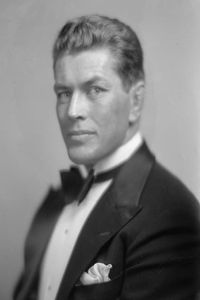Gene Tunney's parents, Mary Jean (also known as Rose) Lydon and John Tunney, hailed from Mayo, Ireland, specifically near Kiltimagh, before migrating to New York City.
In the realm of boxing, Tunney achieved unparalleled success, claiming the heavyweight championship from Jack Dempsey in 1926 and subsequently defending his title against Dempsey once more in 1927.
The following year, Tunney successfully defended his title against Tom Heeney before retiring from the sport undefeated in 1928.
In October 1928, Tunney wed Mary Josephine Lauder (also known as Polly),the great niece of Andrew Carnegie, and embarked on an extensive honeymoon, after which the couple returned to the United States and welcomed four children: three sons and one daughter.
Prior to his boxing career, Tunney had enlisted as a Marine during World War I, and during World War II, he joined the Navy, rising through the ranks to become an officer.
Tunney's literary endeavors included the publication of two autobiographies: 'A Man Must Fight' in 1932 and 'Arms for Living' in 1941.
In addition to his literary pursuits, Tunney's business ventures were remarkably successful.










